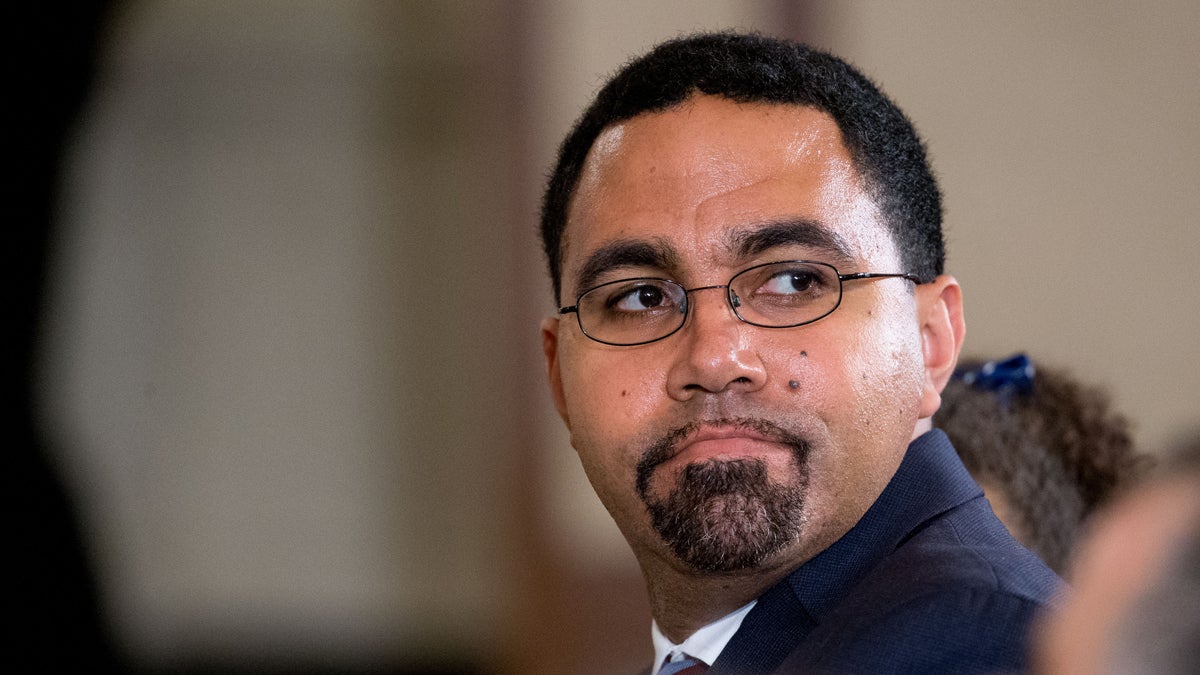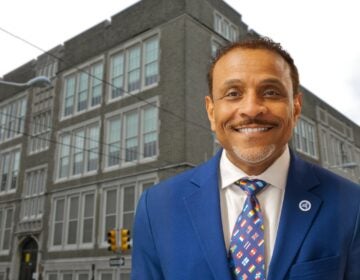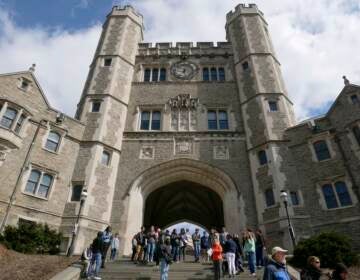In Philly, federal education secretary says it’s time ‘to look beyond’ math and English scores

Acting U.S. Secretary of Education John King was in Philadelphia Thursday to encourage states to take advantage of the changes to the No Child Left Behind Act.(AP Photo/Andrew Harnik)
Major revisions to federal education law mean new options for Pennsylvania legislators, and acting U.S. Secretary of Education John King was in Philadelphia Thursday to encourage states to take advantage of the changes.
“There’s now much more flexibility for states to look beyond just English and math test scores,” said King. “Are students getting access to advanced coursework? Are students getting access to art and music? Are students succeeding in art and science and social studies?”
King appeared at the School of the Future on Thursday to tout the Obama administration’s latest education priorities, which include encouraging states to maintain high academic standards and provide parents and policymakers with clear assessments of academic progress.
The revised No Child Left Behind Act — now renamed the Every Student Succeeds Act — still requires states to test students and intervene in struggling schools. But the rewritten law gives states much more leeway about exactly how to test and respond.
This expands the alternatives to charter takeovers for the lowest-performing schools. States will be free to experiment with more targeted interventions, King said.
“For example, in a struggling elementary school, it might be the right thing to expand early learning,” said King, a former teacher and principal named to his post after former secretary Arne Duncan resigned last fall. “In a struggling school with lots of English language learners, it may make sense to provide much more professional development for teachers to learn how to work effectively with English language learners.”
The changes also open the door to expanding so-called “community schools,” which offer health care and other social services along with regular classes. Expanding such schools is a top priority for Philadelphia’s new mayor, Jim Kenney.
And while Harrisburg officials are moving in a different direction — right now, they’re considering legislation that would allow them to hand low-performing schools over to charter operators — King said the Obama administration will push hard for more federal funding to support community schools.
“Funding would absolutely help,” said Pedro Rivera, Pennsylvania’s education secretary.
But Rivera also said that the Obama administration can help by “breaking down barriers” among the government agencies whose various needs and interests can complicate any interagency collaboration. “It’s the Department of Health, it’s Human Services, [all] part of that conversation,” Rivera said. “So the first [priority], at the federal level, is getting secretaries together to have a comprehensive conversation about how multiple agencies can provide services in schools.”
King said he’d seen some excellent results from community schools, including one in Houston, where on-site dental and health clinics have helped boost student performance.”Educators shared the example of a student that was missing lots of school because severe asthma,” he said. “Doesn’t get proper treatment, ends up in the emergency room because of a severe attack, misses two or three weeks of school. That’s a student that’s going to be behind academically.”
However, he cautioned that expanded non-academic services aren’t enough to turn around a struggling school on their own.
“Part of what critics may be raising is, if you do the wraparound services, but the academic program is still terribly inadequate, you’re not going to see the intended gains,” said King. “So it’s got to be wraparound services, in partnership with a real focus on a quality learning experience in the classroom.”
WHYY is your source for fact-based, in-depth journalism and information. As a nonprofit organization, we rely on financial support from readers like you. Please give today.




